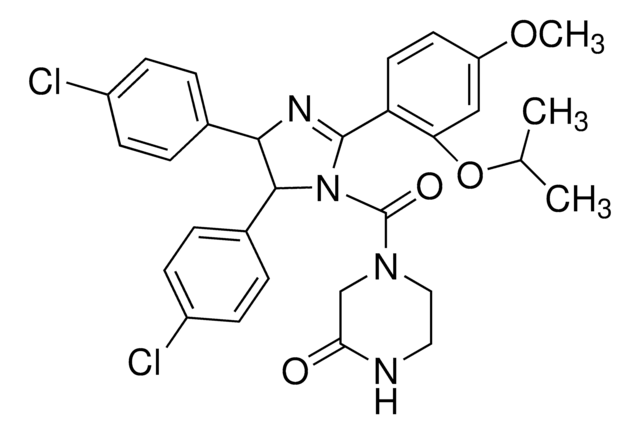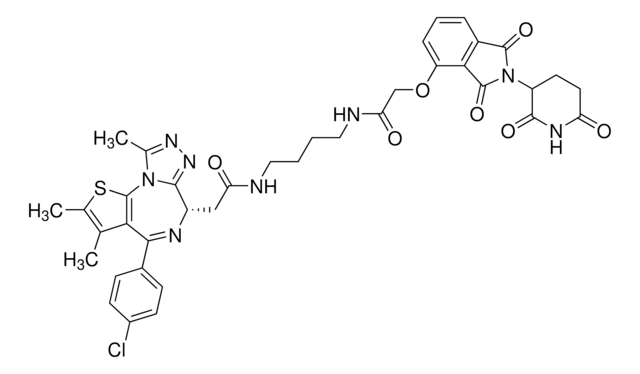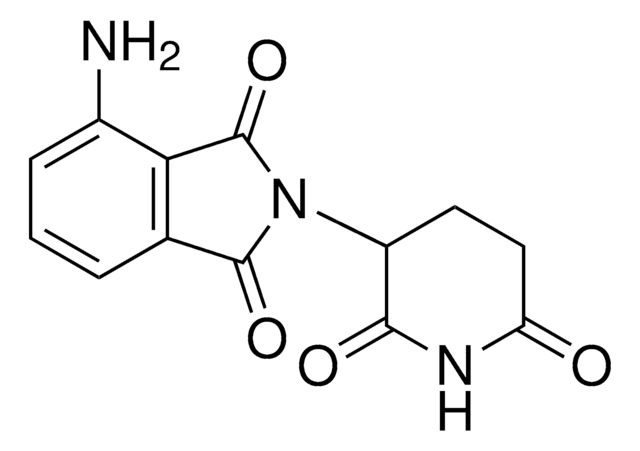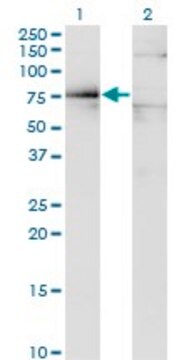SML2601
dTAG-13
≥98% (HPLC), powder, degradation tag (dTAG) system
Synonyme(s) :
(2S)-(1R)-3-(3,4-Dimethoxyphenyl)-1-(2-(2-((6-((2-(2,6-dioxopiperidin-3-yl)-1,3-dioxoisoindolin-4-yl)oxy)hexyl)amino)-2-oxoethoxy)phenyl)propyl 1-((S)-2-(3,4,5-trimethoxyphenyl)butanoyl)piperidine-2-carboxylate, d-TAG-13
About This Item
Produits recommandés
product name
dTAG-13, ≥98% (HPLC)
ligand
thalidomide
Niveau de qualité
Pureté
≥98% (HPLC)
Forme
powder
Couleur
white to beige
Solubilité
DMSO: 2 mg/mL, clear
Température de stockage
−20°C
Chaîne SMILES
O=C(O[C@@H](C1=C(C=CC=C1)OCC(NCCCCCCOC2=C(C3=CC=C2)C(N(C3=O)C4CCC(NC4=O)=O)=O)=O)CCC5=CC=C(C(OC)=C5)OC)[C@@H]6CCCCN6C([C@H](C7=CC(OC)=C(C(OC)=C7)OC)CC)=O
Actions biochimiques/physiologiques
Autres remarques
Informations légales
Produit(s) apparenté(s)
Code de la classe de stockage
11 - Combustible Solids
Classe de danger pour l'eau (WGK)
WGK 3
Point d'éclair (°F)
Not applicable
Point d'éclair (°C)
Not applicable
Certificats d'analyse (COA)
Recherchez un Certificats d'analyse (COA) en saisissant le numéro de lot du produit. Les numéros de lot figurent sur l'étiquette du produit après les mots "Lot" ou "Batch".
Déjà en possession de ce produit ?
Retrouvez la documentation relative aux produits que vous avez récemment achetés dans la Bibliothèque de documents.
Contenu apparenté
Targeted protein degradation (TPD) is an emerging drug discovery strategy that uses small-molecules, such as proteolysis-targeting chimeras (PROTACs), to eradicate targeted proteins linked to disease from cells.
Notre équipe de scientifiques dispose d'une expérience dans tous les secteurs de la recherche, notamment en sciences de la vie, science des matériaux, synthèse chimique, chromatographie, analyse et dans de nombreux autres domaines..
Contacter notre Service technique







